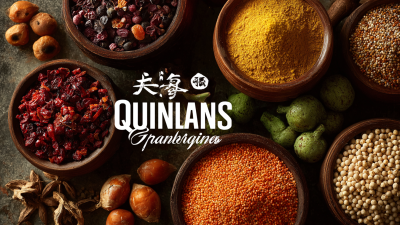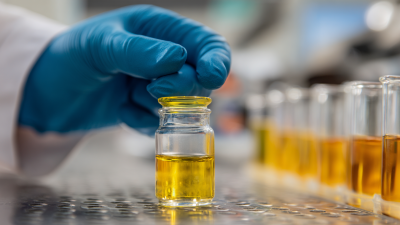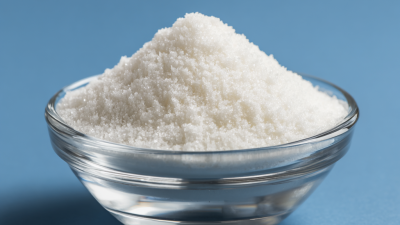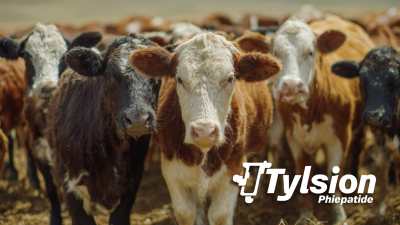Top Insights and Practical Tips for Sourcing Qibanqing Granules Globally
In recent years, the global demand for Qibanqing Granules has seen substantial growth, driven by an increasing awareness of traditional Chinese medicine and its efficacy in treating various health conditions. According to a 2022 market analysis by Grand View Research, the herbal medicine market is projected to reach USD 296 billion by 2028, with significant contributions from herbal formulations like Qibanqing Granules. However, sourcing these granules presents unique challenges, including quality assurance, regulatory compliance, and logistical complexities. Understanding these issues is crucial for businesses looking to enter or expand within this market. This blog aims to provide top insights and practical tips for effectively sourcing Qibanqing Granules on a global scale, while addressing the inherent problems associated with this process.

Identifying Quality Standards for Qibanqing Granules in Global Markets
 When sourcing Qibanqing granules globally, understanding and identifying quality standards is crucial for ensuring product integrity and marketability. According to a recent industry report by Grand View Research, the global herbal supplements market is projected to reach USD 8.8 billion by 2027, with a significant portion attributed to traditional Chinese medicines like Qibanqing. This places emphasis on the importance of adherence to stringent quality standards defined by organizations such as the World Health Organization (WHO) and local regulatory bodies.
When sourcing Qibanqing granules globally, understanding and identifying quality standards is crucial for ensuring product integrity and marketability. According to a recent industry report by Grand View Research, the global herbal supplements market is projected to reach USD 8.8 billion by 2027, with a significant portion attributed to traditional Chinese medicines like Qibanqing. This places emphasis on the importance of adherence to stringent quality standards defined by organizations such as the World Health Organization (WHO) and local regulatory bodies.
To enhance sourcing efforts, buyers should prioritize suppliers that comply with Good Manufacturing Practices (GMP). This not only ensures purity and potency but also minimizes risks associated with contamination. Tip: Conduct regular audits and quality checks of potential suppliers to assess their quality control processes and certifications.
Furthermore, it is essential to be aware of the geographical variances in quality standards. For instance, the U.S. FDA has specific regulations that might differ significantly from those in Europe or Asia. Tip: Familiarize yourself with the import regulations and quality expectations in your target market to avoid compliance issues and enhance overall product acceptance. By staying informed and vigilant, businesses can effectively navigate the complexities of sourcing Qibanqing granules on a global scale.
Key Global Suppliers and Their Competitive Advantages in Qibanqing Granules
When sourcing Qibanqing granules globally, it's crucial to identify key suppliers who not only have the capacity to meet your needs but also offer competitive advantages. Leading suppliers often differentiate themselves through the quality of their products, advanced processing techniques, and a strong understanding of regulatory requirements across different markets. Notable players in the market tend to invest in research and development, allowing them to innovate and create value-added products that cater to specific consumer demands.
One effective tip is to conduct thorough market research to identify potential suppliers who have established a reputable presence in the industry. Look for suppliers with a history of successful collaborations, and consider their scalability to ensure they can meet your demand as your business grows. Additionally, requesting samples for quality assessment before finalizing any contracts can help prevent costly mistakes.
Another critical strategy is to leverage technology for communication and negotiation. Utilizing digital platforms can enhance transparency and foster stronger relationships with suppliers, making it easier to compare offerings and negotiate terms. Remember to assess suppliers not just on price but also on their reliability and service level to ensure a sustainable sourcing strategy.
Top Insights on Global Sourcing of Qibanqing Granules
Effective Strategies for Negotiating with Qibanqing Granules Suppliers Worldwide
When negotiating with Qibanqing granules suppliers worldwide, understanding the market dynamics is crucial. According to a report by Grand View Research, the global herbal medicine market, which includes Qibanqing, is projected to reach approximately $162 billion by 2025, growing at a CAGR of 6.5%. This growth indicates not only rising demand but also intensifying competition among suppliers. Buyers must be well-prepared to leverage this competitive landscape during negotiations, ensuring that they secure the best terms without compromising quality.
To achieve favorable outcomes, it's essential to establish strong relationships with suppliers. A study conducted by McKinsey highlights that companies that invest in building partnerships can reduce their procurement costs by up to 18%. Engaging in transparent communication about expectations and requirements allows for smoother negotiations. Additionally, considering supplier certifications and quality standards can further enhance trust and set the stage for mutually beneficial agreements. With the right strategies, businesses can navigate the complexities of sourcing Qibanqing granules effectively while optimizing costs and ensuring quality.
Understanding Regulatory Compliance for Importing Qibanqing Granules
When importing Qibanqing granules, understanding regulatory compliance is crucial for navigating global markets. The legal landscape surrounding herbal products can be complex, often varying significantly by region. According to a report by the World Health Organization (WHO), herbal medicine is gaining popularity worldwide, with the market expected to reach USD 130 billion by 2027. To capitalize on this growth, companies must ensure that their sourcing complies with local and international regulations, including Good Manufacturing Practices (GMP) and stringent quality assessments.
In many regions, particularly in North America and Europe, importers are required to provide comprehensive documentation that verifies the origins and safety of Qibanqing granules. The European Directorate for the Quality of Medicines (EDQM) emphasizes the necessity of adhering to strict phytosanitary standards to prevent contamination and ensure product efficacy. Moreover, recent statistics from the Global Trade Analysis Project indicate that regulatory compliance violations can lead to significant penalties, which underscores the importance of maintaining rigorous oversight. By prioritizing compliance, businesses can establish trust with consumers and regulators alike, paving the way for successful market entry and sustainable growth.
Top Insights and Practical Tips for Sourcing Qibanqing Granules Globally
| Country | Regulatory Authority | Import Compliance Requirements | Key Considerations | Average Lead Time (Days) |
|---|---|---|---|---|
| China | State Administration for Market Regulation | Import License, Product Inspection | Ensure proper labeling and documentation | 15 |
| USA | Food and Drug Administration (FDA) | FDA Registration, Import Entry | Check for potential allergens | 20 |
| Germany | Federal Office of Consumer Protection | Compliance with EU regulations | Verify product sustainability | 25 |
| Australia | Therapeutic Goods Administration (TGA) | TGA Approval, Import Notification | Document health claims | 30 |
| Canada | Health Canada | Product Licensing, Import Permit | Understand provincial regulations | 18 |
Best Practices for Quality Control in Sourcing Qibanqing Granules Globally
When sourcing Qibanqing granules globally, implementing best practices for quality control is essential to ensure that the product meets both safety and efficacy standards. First and foremost, establishing robust supplier relationships is critical. Engaging in open dialogue about quality expectations and inspection processes fosters transparency and accountability. A pre-qualification assessment of potential suppliers can help identify those with proven track records in quality management systems, including ISO certifications.

Additionally, conducting regular quality checks throughout the supply chain can mitigate risks associated with inconsistencies. Employing third-party inspection services at the point of origin ensures that Qibanqing granules are analyzed for purity and potency. Implementing a traceability system allows businesses to monitor batches from production to delivery. This should include documentation of compliance with relevant health and safety regulations, which not only protects consumers but also enhances the brand's reputation in a competitive market.
Finally, investing in training programs for local teams involved in the sourcing process can significantly improve quality control outcomes. Educating the workforce on international standards and quality assurance techniques promotes a culture of excellence and craftsmanship. By prioritizing these best practices, companies can secure high-quality Qibanqing granules that align with global market demands and consumer expectations.
Related Posts
-

2025 Market Insights: The Rise of Best Qibanqing Granules and Industry Growth Data Analysis
-

Unlocking the Advantages of Ferulic Acid for Innovative Global Supply Chain Solutions
-

Unlocking the Potential of Best Levulinic Acid Technical Parameters and Application Guide
-

Top 7 Tips for Selecting the Best Agmatine Sulfate Manufacturer in the Industry
-

Exploring Effective Alternatives to Best Tylosin Phosphate for Livestock Health
-

Navigating Export and Import Certifications for the Best Propylene Glycol in Today's Market





